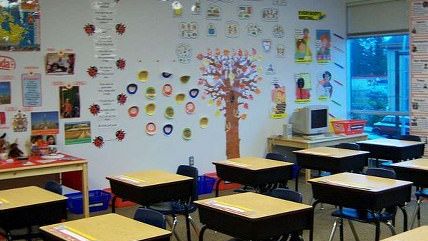Expanded Options Are the Best Justification for School Choice


Opponents of school choice often act as if the eternal chase after standardized test scores is the only purpose of any scheme for educating kids. If you can't guarantee a boost in the number of ovals little Johnny fills in correctly with his Number 2 pencil, they don't want to hear about offering alternatives to families and students. So it's pleasant to live in an age during which some places offer lots of education options, and to realize that the diversity that results is its own justification.
Just the other day, the Milwaukee Journal-Sentinel editorialized:
In a report released last month, the state Department of Public Instruction found that students attending voucher schools in Milwaukee and Racine scored lower than public school students in Milwaukee Public Schools and the Racine Unified School District on the state standardized achievement test.
Only about 13% of students in the voucher schools scored proficient or better in math and about 11% scored proficient or advanced in reading. In MPS, about 19% of students were proficient in math and about 14% in reading.
Neither of those results is cause for rejoicing - and certainly not proof of concept for the voucher schools. The voucher experiment is 23 years old; it allows students who qualify to accept a publicly funded voucher worth $6,442 annually to attend a qualifying private school.
Advocates for the choice schools argue only the test scores of low-income MPS students should be compared to voucher students. That would give the voucher students a small advantage in reading. But we think the DPI got it right. It argues that because the income limit was raised, it's appropriate to compare all kids.
It's true that in the state-mandated long-range study of the voucher schools, there are signs of an advantage. The School Choice Demonstration Project has used sampling techniques to track similar groups of students from 2007 to 2011. The findings show that voucher students made reading gains in one of the years studied that were higher than a matched sample of MPS peer students. Math achievement was similar in all the years studied. But the advantage in reading was only for one year and might be related to introduction of a new state testing requirement for the voucher schools.
So, even while conceding that there are evidence of educational improvemets in students allowed to attend schools of their choice, the Journal-Sentinel editorial board concludes that this "underwhelming finding surely is not enough to justify a broad expansion." It's all about test scores, and they want to see big numbers, damn it, before they'll let families pick and choose among schools.
Contrast this with a news story from the Arizona Republic about the dizzying menu of education options available in the Copper State.
Arizona students can learn to speak Mandarin, study dance, become young engineers or delve into the medical sciences because of the state's competitive K-12 marketplace.
Arizona is one of the nation's leading states in letting families choose where and how their children are educated, according to the Center for Education Reform, a Washington, D.C., education think tank that ranks Arizona sixth in the country for school choice.
The state has crafted policies that allow children living in one district to enroll in another, provide scholarships for students with disabilities to attend private schools and allow charter schools to flourish.
The outcome is that many private schools, charter schools and traditional districts go beyond the basics, offering specialty programs that appeal to parents and students. However, the start-up costs, training and new materials can be challenging for cash-strapped schools. And students at specialty schools aren't a magic bullet for improved state test scores.
The article cites John Huppenthal, state superintendent of public instruction, on the point that "charters and open enrollment have caused traditional districts to offer more options to keep students and maintain state funding, because those students are no longer tied to a school by boundaries." That's because funds follow the student among various kinds of public schools (charters included) in Arizona. Vouchers help make private schools competitive players. And homeschooling is easy and popular in Arizona, too.
"It has created a more fluid environment," Huppenthal said. "Almost every district is affected by a local charter school. If they don't have choices, they will lose students."
Even in my rather rural neck of the woods, the explosion of options prompted the school district to start an International Baccalaureate school to compete. In turn, that pushed the charters, including the one my son attends, to work harder.
It's true that charters and private schools don't automatically generate higher test scores. But that's not what families are necessarily looking for. Yes, we want good academics, but schools that "teach to the test" have a way of becoming notorious. What many of us want are schools that offer programs and cultures where our children, with their individual interests and personalities, fit in and thrive. The Republic article makes that point nicely:
"When districts adjusted, charters had to become more specialized," said David Garcia, an associate professor and school-choice expert at Arizona State University
Specialty schools don't necessarily bring major differences in performance, Garcia said. The specialized programs aren't intended to maximize scores on state exams.
"They are thematic or programmatic by design, and the best of them would say that test scores are not the best way to measure their performance," Garcia said.
Instead, the specialty programs allow students more flexible, focused education. That includes 17-year-old Hayleigh Daugherty, who is studying law at Arizona Agri Business and Equine Center, a charter school at Paradise Valley Community College.
Assessing schools solely on test scores is like assessing restaurants only on the nutritional value of the meals they offer. You're missing something very important. Chinese take out isn't a substitute for a steak house, and an IB school is no substitute for a performing arts academy.


Show Comments (24)